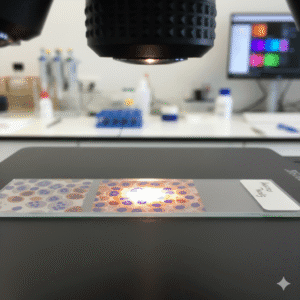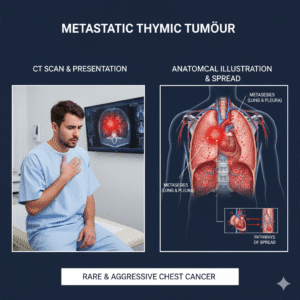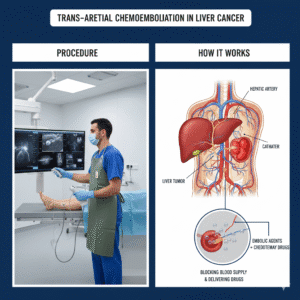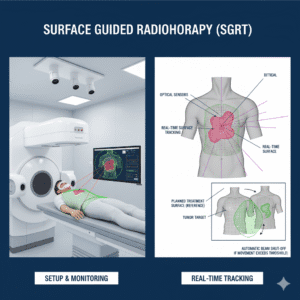
Clinical Trials in Oncology

Q1: What are Clinical Trials in Cancer?
A: Clinical trials are research studies that test new treatments, drugs, or approaches in people to determine their safety and effectiveness. In the context of cancer, clinical trials are essential for discovering better ways to prevent, diagnose, and treat cancer. They offer patients access to cutting-edge therapies that are not yet widely available.
Q2: How do Clinical Trials work?
A: Clinical trials follow a structured process:
- Preclinical Research: Before a treatment is tested in humans, it undergoes extensive lab testing.
- Phase I Trials: These trials test a new treatment’s safety, dosage, and side effects in a small group of people.
- Phase II Trials: The focus is on determining how effective the treatment is in a larger group, while continuing to assess its safety.
- Phase III Trials: These involve even larger groups and compare the new treatment to the current standard treatment. This phase often leads to FDA approval if the treatment is successful.
- Phase IV Trials: After a treatment is approved, further research is conducted to monitor its long-term effects and effectiveness in the general population.
Q3: Why are Clinical Trials important in Cancer Treatment?
A: Clinical trials are crucial because they:
- Advance medical knowledge: They help researchers discover new and improved cancer treatments.
- Provide access to new treatments: Patients in clinical trials can access cutting-edge therapies before they are available to the public.
- Improve outcomes: Trials can lead to treatments that offer better survival rates, fewer side effects, or improved quality of life.
- Personalized treatment: Some trials focus on targeted therapies that are tailored to the genetic makeup of a patient’s cancer.
Q4: Who can participate in a Clinical Trial?
A: Eligibility for clinical trials depends on several factors, including:
- Type and stage of cancer: Certain trials are designed for specific cancer types or stages.
- Previous treatments: Some trials require patients who have tried other treatments, while others may be for those who have not yet received treatment.
- Overall health: Participants must meet certain health criteria to ensure the safety and effectiveness of the trial.
- Specific characteristics: Trials may require patients with specific genetic markers or characteristics that the treatment is targeting.
Your oncologist will help determine if a clinical trial is suitable for you based on these factors.
Q5: What are the benefits of participating in a Clinical Trial?
A: The benefits of participating in a clinical trial include:
- Access to new treatments: Participants may receive a treatment that is not yet available to the general public.
- Close monitoring: Patients in trials often receive more frequent check-ups and monitoring than those receiving standard care.
- Contributing to research: Participation helps advance cancer research, potentially benefiting future patients.
- Potential for better outcomes: In some cases, the new treatment may be more effective than existing options.
Q6: Are there risks involved in Clinical Trials?
A: Yes, there are risks, including:
- Unknown side effects: New treatments may have side effects that are not yet fully understood.
- Uncertain outcomes: The treatment may not be more effective than the standard of care.
- Placebo group: In some trials, participants may receive a placebo (a harmless, inactive substance) instead of the actual treatment, although this is rare in cancer trials where placebos are usually combined with standard treatment rather than given alone.
Your healthcare team will explain the potential risks and benefits before you decide to participate.
Q7: How do I find and join a Clinical Trial?
A: To find a clinical trial:
- Talk to your doctor: Your oncologist can recommend trials that may be appropriate for your specific type and stage of cancer.
- Search online: Websites like ClinicalTrials.gov list ongoing trials worldwide.
- Cancer centers: Many large cancer centers and hospitals conduct clinical trials and can provide information about available studies.
Your healthcare provider can guide you through the process of joining a trial and help you understand what participation involves.
Q8: What should I consider before joining a Clinical Trial?
A: Before joining a clinical trial, consider:
- Understanding the purpose: Make sure you know what the trial is testing and why.
- Informed consent: You’ll be provided with detailed information about the trial and must give your consent before participating.
- Commitment: Participation may require more frequent visits to the treatment center, additional tests, or longer treatment periods.
- Potential outcomes: Weigh the potential benefits against the risks and uncertainties of the trial.
Discussing these considerations with your doctor and family can help you make an informed decision.
If you have more questions about clinical trials or are interested in participating in one, talk to your healthcare provider. They can provide detailed information and help you explore options that may be suitable for your situation.
Related Post


CyberKnife
August 6, 2024

Immunotherapy
August 7, 2024
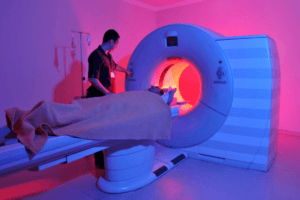
MRI Linac
August 7, 2024

Gamma Knife
August 7, 2024
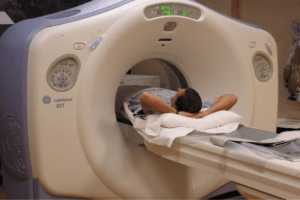
Cancer Screening
August 22, 2024
Gallery
Click below to book a clinic appointment
Ask More Questions Send Query On Email


